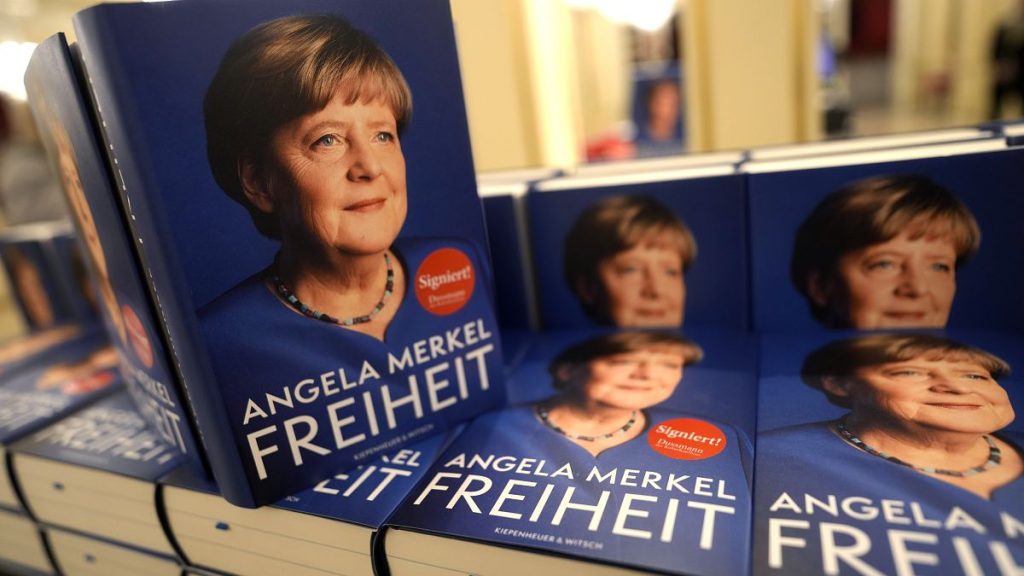“Freedom” is an autobiographical account by Angela Merkel, who served as the Chancellor of Germany from 2005 to 2021. In this nearly 700-page memoir, Merkel reflects on her extensive political journey within both national and European contexts, addressing key events and decisions that defined her tenure. Hailing from East Germany during the era of the German Democratic Republic, Merkel’s ascent to prominence reflects not just her personal growth but also the broader political shifts in Europe. The book comes at a significant moment in Europe’s history, providing insights into Merkel’s impact and her legacy as one of the most influential female leaders on the continent.
One of the central themes in “Freedom” is Merkel’s rationale behind her opposition to the swift NATO accession of Ukraine and Georgia. In her view, such rapid integration would not have guaranteed protection against Russian aggression, as exemplified by the tensions in Ukraine and Georgia during the 2008 Olympics, when Russia invaded Georgia. Merkel argues that it would have been misguided to believe that NATO membership alone could shield these nations from external threats, highlighting her cautious approach to geopolitics and national security. This stance has garnered mixed reactions, with some European legislators, like Virginijus Sinkevičius from the Green Party, suggesting that refusing immediate NATO membership for Ukraine and Georgia may have sent a strong signal to Putin and potentially deterred future aggressions.
Additionally, Merkel’s energy policy has faced criticism for fostering a dependence on Russian gas. Critics contend that this reliance has compromised Germany’s strategic autonomy and that it positioned Russia in a place of undue influence over Germany’s energy choices. MEP Michele Picaro criticized Merkel’s approach as detrimental to both Germany and the broader European Union, characterizing the energy policies as shortsighted in relation to the long-term geopolitical landscape. This aspect of her governance underscores the complex balancing act Merkel navigated throughout her chancellorship—striving for economic stability while also addressing concerns about national security and energy independence.
The book also delves into the European debt crisis, notably the Greek financial crisis, which was a pivotal issue during Merkel’s time in office. Critics have assessed her handling of these economic challenges as favoring German banks over the welfare of the affected nations, resulting in significant hardships for the populations of Greece, Spain, Portugal, and Ireland. Swedish MEP Jonas Sjöstedt voiced the contention that Merkel’s decisions sacrificed the interests of these nations for the sake of maintaining the stability of the eurozone and protecting German financial institutions. This critique highlights the tensions within European policy-making, where economic imperatives often clash with humanitarian considerations.
Conversely, Merkel has her defenders who credit her with steering the eurozone away from an imminent collapse during critical moments. Radan Kanev from the European People’s Party emphasized that Merkel’s decisions in response to the crisis were necessary to stabilize both the euro and the broader European economy. This dichotomy in perspectives illustrates the polarized views surrounding Merkel’s legacy; while many commend her for her pragmatic and rational approach to severe crises, others lament the human toll her policies entailed. Her memoir provides a platform for Merkel to respond to these criticisms and present her side of the narrative.
Ultimately, “Freedom” serves not only as an autobiographical reflection but also as a lens into the political landscape of modern Europe shaped by Merkel’s leadership. The text captures her insights on pivotal decisions and the challenges she faced as she navigated a politically fragmented and increasingly complex Europe. As she reflects on her sixteen years in power, Merkel’s memoir will be scrutinized by scholars, political analysts, and the public alike, ensuring her complex legacy continues to provoke debate and analysis long after her departure from the political scene.














